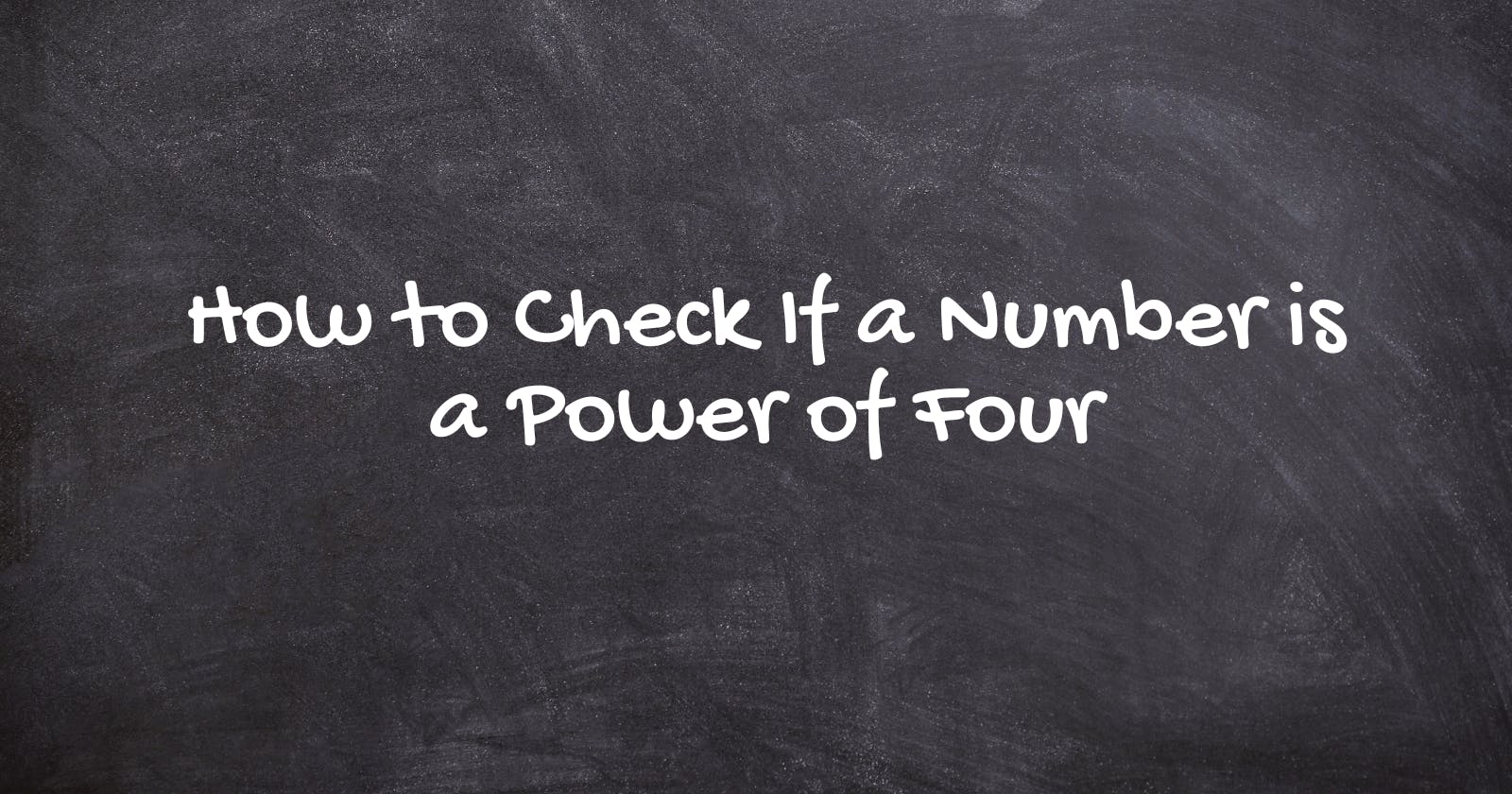How to Check If a Number is a Power of Four
The math behind Leetcode 342. Power of Four.
Problem statement
Given an integer n, return true if it is a power of four. Otherwise, return false.
An integer n is a power of four if there exists an integer x such that n == 4^x.
Example 1
Input: n = 16
Output: true
Example 2
Input: n = 5
Output: false
Example 3
Input: n = 1
Output: true
Constraints
-2^31 <= n <= 2^31 - 1.
Follow up: Could you solve it without loops/recursion?
Solution 1: Division by four
Code
#include <iostream>
using namespace std;
bool isPowerOfFour(int n) {
while (n % 4 == 0 && n > 0) {
n /= 4;
}
return n == 1;
}
int main() {
cout << isPowerOfFour(16) << endl;
cout << isPowerOfFour(5) << endl;
cout << isPowerOfFour(1) << endl;
}
Output:
1
0
1
Complexity
Runtime:
O(logn).Extra space:
O(1).
Solution 2: Binary representation
You can write down the binary representation of the powers of four to find the pattern.
1 : 1
4 : 100
16 : 10000
64 : 1000000
256 : 100000000
...
You might notice the patterns are n is a positive integer having only one bit1 in its binary representation and it is located at the odd positions (starting from the right).
How can you formulate those conditions?
If n has only one bit 1 in its binary representation 10...0, then n - 1 has the complete opposite binary representation 01...1.
You can use the bit operator AND to formulate this condition
n & (n - 1) == 0
Let A be the number whose binary representation has only bits 1 at all odd positions, then n & A is never 0.
In this problem, A < 2^31. You can chooseA = 0x55555555, the hexadecimal of 0101 0101 0101 0101 0101 0101 0101 0101.
Code
#include <iostream>
using namespace std;
bool isPowerOfFour(int n) {
return n > 0 && (n & (n - 1)) == 0 && (n & 0x55555555) != 0;
}
int main() {
cout << isPowerOfFour(16) << endl;
cout << isPowerOfFour(5) << endl;
cout << isPowerOfFour(1) << endl;
}
Output:
1
0
1
Complexity
Runtime:
O(1).Extra space:
O(1).
Thanks for reading. Get my book "10 Classic Coding Challenges" for FREE:

